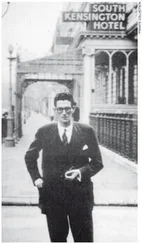Joseph Cabaret, the distinguished old schoolteacher, was dragged into the street by his white goatee and told to identify which perfidious Frenchman had killed the hussar, whose dead horse still lay in the street, abuzz with flies. ‘Hand over the guilty man or it is death for you and the village goes up in flames.’ The curé Ledieu was struck in the face by an Uhlan, a German cavalryman. Delabranche, the elderly pharmacist, was taken away, tied to a tree, beaten up, and then locked in the town cells with his hands ‘so tightly bound, they bled’. Henri Godé, the mild and diminutive deputy mayor of Le Câtelet, was also ‘arrested’ and hog-tied, along with the town notary, Léon Lege.
A bullet retrieved from the body of the cavalry officer thought to have been killed by Guy Lourdel, was found to be of English manufacture, but the German officer in command continued to insist that even if a Frenchman had not fired the fatal shot this was a measure of incompetence rather than innocence. ‘Bring us the sniper or else at 7.00 a.m. you will be shot and this place will be burned to the ground,’ he warned.
Lourdel was a wildly eccentric man with a patriotism verging on mania and a commitment to his government and country that was excessive even for a tax inspector. At the age of thirteen, he had joined a band of partisans in the Franco-Prussian War, and on the first day of mobilisation in 1914 he had dispatched his three sons to war. He attempted to join up himself but, at fifty-seven, he had been rejected as too old.
At dawn, Lourdel presented himself to the German officers now lodged in Mademoiselle d’Alincourt’s château, proudly acknowledging that he had opened fire on the German troops, but also pretending to be even more mad than he was. ‘He knew he had to take whatever was coming to him, for the sake of the village which was in such deadly peril on account of his bravura, but also for the sake of his self-respect,’ a neighbour later wrote. ‘He put on a good performance as a bloodthirsty killer, and standing amid the Germans, as if blind to their presence, he kept shouting: “Kill the lot of them!”.’ Lourdel’s captors became convinced they were in the presence of a genuine lunatic, and locked him up instead of killing him.
Terrified, several villagers had hidden in the undergrowth of the moat surrounding the medieval castle. That night a jumpy German sentry heard a rustling in the bushes around the moat and opened fire, shooting one Madame Lemaire-Liénard through the throat. She had taken refuge there with her husband and daughter. ‘With the death of the woman the German officers began to calm down. They had wanted innocent blood, and they got it.’
After twenty-four hours, the invaders finally released their hostages and the main body of troops moved on. A handful of guards remained behind to keep order and in the wake of their first, traumatic experience of German occupation the people of Le Câtelet ‘cleaned out and disinfected their homes’. The body of the horse, ‘which had been covered in religious ornaments by the passing German troops, was dragged away’. So too was the tax inspector Lourdel; he was taken under guard, still raving for German blood, to Reims. The city, and Lourdel, were duly liberated a few weeks later in the Allied counterattack, and Le Câtelet’s eccentric patriot finally succeeded in persuading the French army to allow him to join the ranks. He survived the battles of Verdun and the Somme, was wounded twice, and lived on to a great age boasting of how he had resisted the German army single-handed.
Although Lourdel’s actions had ultimately released him from life in German-occupied France, the more cautious folk of the region drew quite another moral from the tale: Lourdel is still referred to as ‘that imbecile who shot at the German hussar and nearly had the lot of us killed’. There were other ways to defy the Germans than by shooting at them, they said. The German occupation was only a few hours old, but already some had concluded that accommodation rather than confrontation was the best approach.
The most immediate manifestation of that moral dilemma, which would trouble the occupied people of northern France for the next four years, was how to react to the scores of British soldiers left behind in the retreat. At Vendhuile, just hours before the Germans arrived, the mayor spotted a group of British soldiers drinking in a bar and could not suppress the suspicion that ‘they wanted to be caught’. In Hargicourt the deputy mayor reported an English soldier who had hidden in woods by the road into the village who ‘had the audacity to open fire, as a despairing gesture’, when the enemy columns arrived, and then ran to hide in the nearest barn. When German troops began bayoneting the straw, he emerged and surrendered.
Suddenly deprived of orders and a clear line of command, the lost soldiers reacted in different ways. Since the British military command had not anticipated any such eventuality, the rules governing what a soldier should do if trapped behind the lines were vague. Some gave themselves up. Others wandered blindly around the countryside, avoiding every human being and hoping for miraculous deliverance. Some literally went to ground, like Private Patrick Fowler of No 1 troop, A Squadron, of the 11th Hussars, who ‘rode about aimlessly’ for several days before abandoning his horse and concealing himself in a wood near Bertry. He would spend the entire winter there, living off whatever he could kill or uproot, as the war continued to the south. Another soldier, nineteen-year-old David Cruikshank of the Ist Scottish Rifles, resorted to transvestism, with the help of Julie-Célestine Baudhuin, a local woman in Le Câteau, who procured for him a wig and clothes. Cruikshank was fresh-faced enough to pass for a woman, but his Highlander’s stride would be a giveaway. He solved the problem by tying his ankles together loosely with a piece of string.
Some soldiers chose to throw themselves on the mercy of strangers. Some were turned away, but most were hidden in cellars, attics, haylofts and outhouses.
The soil was settling over John Sligo’s grave in Villeret cemetery when Florency Dessenne, village mason and professional tobacco smuggler, opened his back door to find a dishevelled creature on the step. The soldier had four days’ growth of beard, a bloody bandage around his arm, and spoke reasonably good French. Holding the soldier’s hand was Florency’s seven-year-old daughter, Marthe, who explained that she had found him under a bush while she was out collecting dandelion leaves from the fields by the Hargicourt road.
As Marie-Thérèse, Florency’s pregnant wife, joined her husband on the doorstep she exclaimed: ‘My God, Marthe. What have you brought upon us? This is going to mean trouble.’
Robert Digby was swiftly ushered inside and into the presence of the widow Dessenne, Marie Coulette, probably the most formidable woman in Villeret. A compact, bullet-eyed woman of sixty-five with a personality as sharp as a hatchet, Marie Coulette was the undisputed power in the Dessenne households – the two adjacent buildings on the rue d’En Bas, with granary and outhouses, and a third single-storey brick building on the opposite side of the road. This was Marie Coulette’s tiny empire, where she ruled with extreme vigour and periodic explosions of violence, over three generations of the family: her son Florency and daughter-in-law Marie-Thérèse; her brother Léon Recolet and his wife Berthe, her daughter-in-law Eugénie (whose husband Jules was away at the front), at least eight grandchildren and a German shepherd dog. The smaller members of the tribe took pains to stay as far as possible from Marie Coulette, whose sudden outbursts of affection could be as disconcerting as her temper. ‘I always tried to avoid being embraced by my grandmother,’ one of the children recalled. ‘She had a moustache, which was very prickly.’ In the words of another relative: ‘Marie Coulette was the matriarch, the clan chief, with a temperament to match. Everyone liked her, and everyone was scared of her. She was always willing to lend a hand, but you did what she said. One word from Marie Coulette was enough.’
Читать дальше












